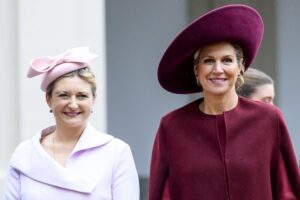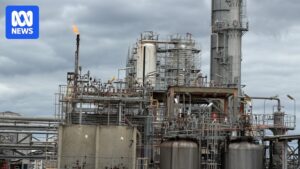
Australia is under fire from climate scientists who argue that the Albanese government’s new 2035 emissions reduction targets fall short of the urgency needed to combat climate change. Despite the targets, Australia would remain one of the world’s most emissions-intensive economies, according to a group of top climate scientists.
The criticism comes as Prime Minister Anthony Albanese and Climate Change and Energy Minister Chris Bowen attempt to resolve a standoff with Turkey over the hosting rights for next year’s United Nations climate talks. This diplomatic effort is unfolding alongside events at the UN General Assembly in New York.
Scientists Demand Greater Ambition
Professor David Karoly, a prominent climate scientist, has voiced concerns that the government’s targets do not align with the crisis outlined in its own risk assessment or its commitments under the Paris Agreement. Karoly is among 60 scientists who have signed a letter to Prime Minister Albanese, expressing their disappointment.
“We are dismayed that the target announced by the federal government last week – a reduction of between 62 and 70 percent below 2005 levels by 2035 – fails to meet this promise to deliver the highest possible ambition,” the letter states.
The letter highlights that these targets do not reflect the scientific consensus on Australia’s fair contribution to global efforts to limit warming to 1.5 degrees Celsius. Karoly emphasizes that merely meeting these targets would leave Australia with emissions intensity comparable to the United Kingdom’s current levels by 2035.
Context of the New Targets
Announcing the targets, Albanese described them as “ambitious but achievable,” aiming to send the right investment signals and respond to scientific findings. However, Karoly argues that aspiring to average global emission reductions is insufficient for an advanced economy like Australia, which has a responsibility to lead under the Paris Agreement.
The announcement comes amid a broader diplomatic push by Australia to co-host the 2026 climate talks in Adelaide with its Pacific neighbors. However, Turkey, a member of the same UN grouping, has also staked a claim to host the event, complicating Australia’s bid.
Turkey’s Stance and Diplomatic Tensions
Turkey has hardened its stance on hosting the talks, arguing that it can serve as a bridge between developing nations and advanced economies. An opinion piece in Turkey’s state-owned outlet TRT World criticized Australia’s bid, suggesting it demonstrates a sense of entitlement.
“Australia’s bid to brand itself as the Pacific COP does more than project ambition. By implying a de facto right to the presidency and pressing Ankara to withdraw, Australian decision-makers recast consensus rules as obstruction,” the piece argues.
Turkey highlights its recent diplomatic successes, such as facilitating Russia-Ukraine talks and mediating peace agreements, as evidence of its capability to host the climate talks.
Regional Support and Future Implications
Despite frustrations with Australia’s climate policies, Pacific leaders continue to support the bid for a regional COP. Ralph Regenvanu, Vanuatu’s climate minister, has criticized Australia’s approval of the North West Shelf gas project and the new emissions targets. However, Pacific leaders believe hosting the COP would amplify their voices and push Australia towards greater climate ambition.
In the diplomatic arena, Albanese has yet to secure a meeting with US President Donald Trump, while Turkish President Recep Tayyip Erdoğan has been warmly received, highlighting the complex geopolitical dynamics at play.
As the debate over emissions targets and COP hosting rights continues, the outcome will have significant implications for Australia’s international standing and its role in global climate action. The government’s next steps will be closely watched by both domestic and international observers.






